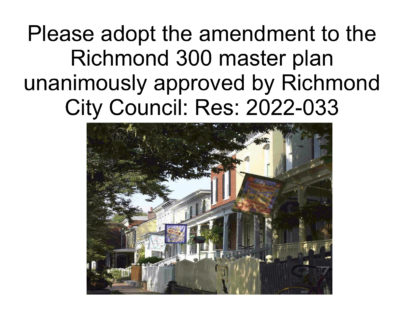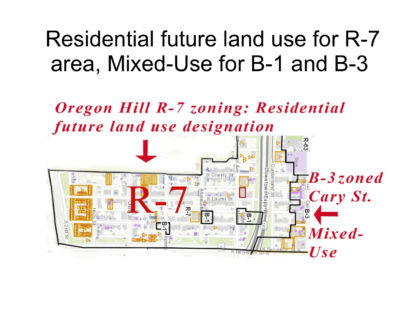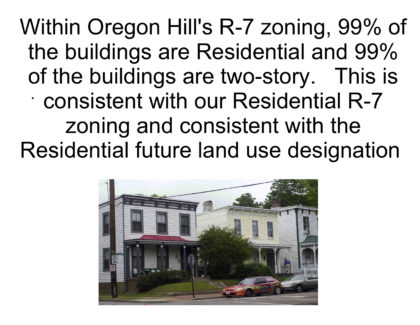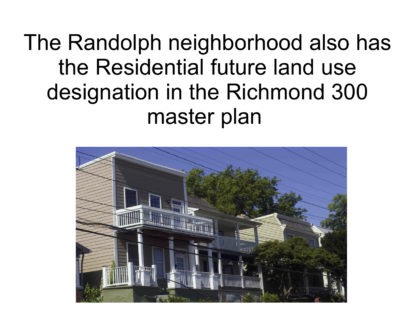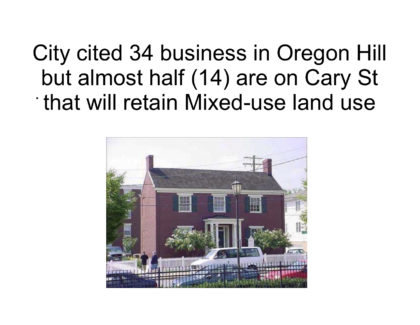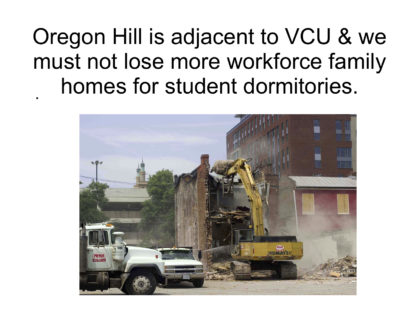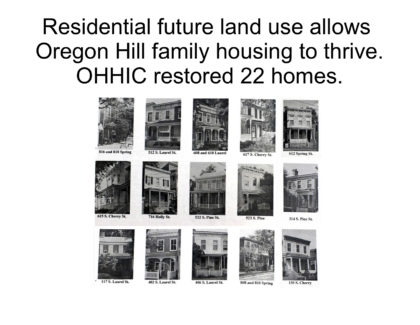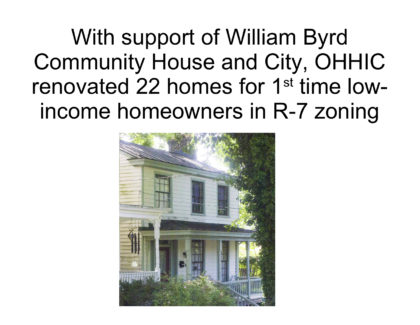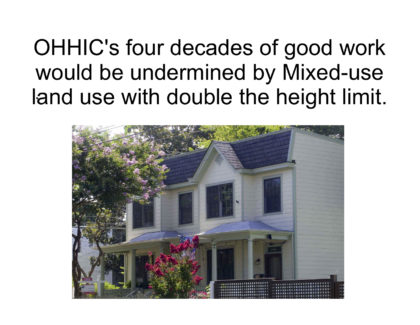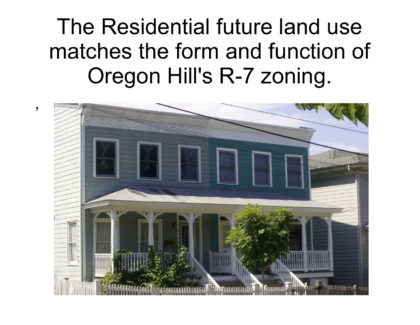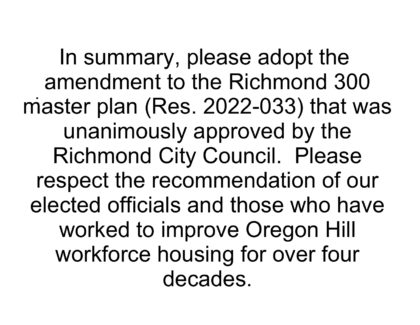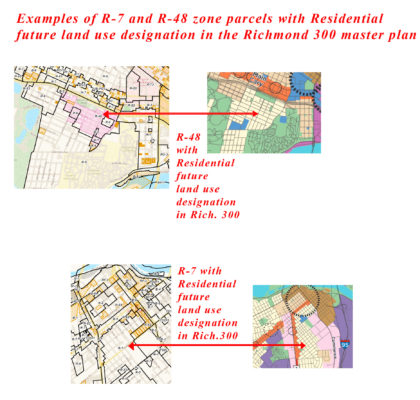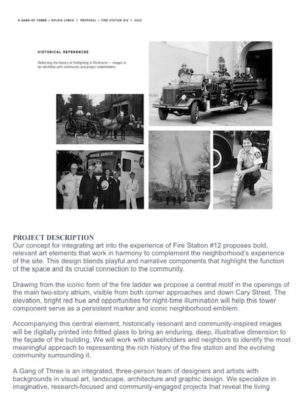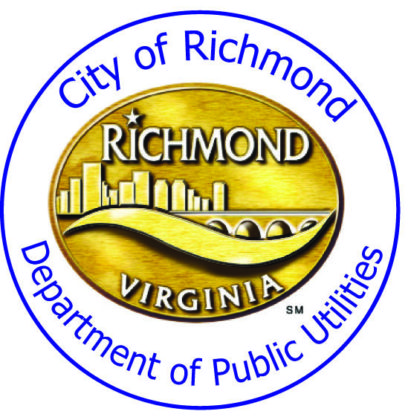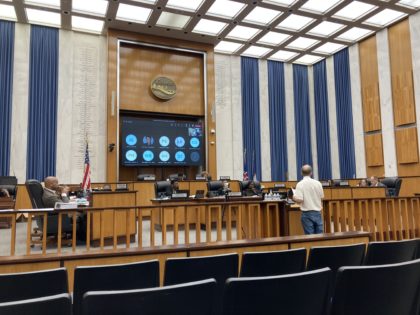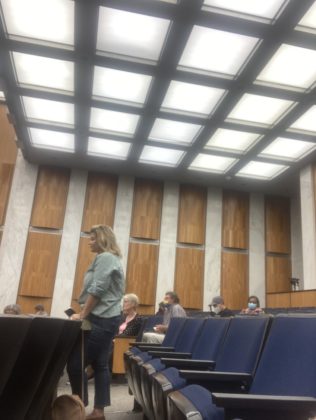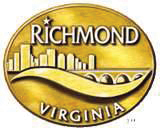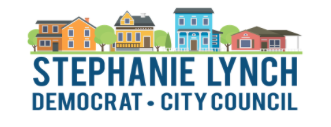From email announcement:
Good evening OHNA members,
I look forward to seeing everyone Tuesday at 7pm for our monthly OHNA meeting. This meeting will be Zoom only.
The Zoom link is provided below. This will allow for full remote participation.
I have attached to this email
1. the agenda for the 27 September meeting (also pasted in below),
2. the minutes for the August 2022 meeting, and
3. the 2022 meeting schedule.
As you know, our amendment to the Richmond 300 plan was not approved by the Planning Commission last week. While we will talk about it at our next meeting, I just wanted to thank everyone who took the time to write a letter to the planning commission (we had 47 letters of support, and none in opposition), or took the time to speak in person or via Microsoft Teams at the planning commission meeting. While we were not successful last week, I want to thank each and every person who took the time to support this effort. The fact that we were not successful makes me no less grateful for your support.
We look forward to seeing everyone Tuesday evening.
Thanks,
Bryan
Monthly Meeting Agenda
Tuesday 27 September 2022
7:00PM
This meeting will be by Zoom only.
Topic: OHNA Monthly Meeting – September
Time: Sep 27, 2022 07:00 PM Eastern Time (US and Canada)
(Editor’s note: Zoom link and passcodes redacted. Please email OHNA at ohnarva@gmail.com in order to receive those items)
Welcome
• Treasurer’s Report
Community Updates:
1. Lt. Brian Robinson, City of Richmond Police Section Lt, 4th Precinct
2. Officer Luke Schrader, Police Liaison, VCU
3. Ms. Verenda Cobbs, VCU
4. Ms. Stephanie Lynch, 5th District Councilperson
5. Ms. Colette McEachin, Richmond Commonwealth’s Attorney
Updates:
1. Update on shooting, Monday 5 September 2022
2. Update on the fall festival, Saturday 22 October 2022
· If you would like to volunteer in any capacity, please email ohnarva@gmail.com
3. Meeting with VCU and Randolph on 6 September 2022
Continued Business
4. Proposed Amendments to the Richmond 300 Land Use Plan / Neighborhood Coalition Update
• This item passed unanimously by City Council on 27 June 2022
• The Planning Commission hearing on 18 July 2022 was informational only; no vote taken.
• Planning Commission voted on this issue at the 15 August 2022 meeting (1:30pm).
o Despite the fact that we had 47 letters in support, and none in opposition, and had several speakers in support, and none in opposition, the Planning Commission voted unanimously against our amendment.
o Next steps
5. Amphitheater planned for Tredegar Green.
· It is slated to seat 5,000 people and accommodate and additional 5,000 standing, as per our meeting with the developer’s representative. No additional parking is planned.
· When the previous amphitheater plan was proposed, the neighborhood raised questions about hours of operation, noise levels, and parking, none of which were ever answered.
o Applicant has not yet scheduled a meeting with OHNA
6. An SUP application has been filed with the City of Richmond for the demolition of 708 China Street, and its replacement with a building.
· The Zoning Committee met with the applicant, and asked them to reconsider demolition and incorporate the historic building into their new construction
· The applicant has not yet come back to the neighborhood with a revision
7. An SUP application has been filed with the City of Richmond for the construction of a two-family of 823 China Street, a vacant lot
· The Zoning Committee met not yet met with the applicant
8. An SUP application has been filed with the City of Richmond for the sponsorship signage to be placed around the field owned by St. Andrew’s School.
· The Zoning Committee met not yet met with the applicant
9. Proposal to replant the Idlewood traffic circle.
• The city has creatively applied a layer of red mulch to the traffic circle
10. Recurring issues with fireworks from rental property near Pine and Albemarle streets.
11. Traffic issues along Idlewood at Cherry and Pine Streets
· There have been a number of recent accidents at these two locations.
· These two intersections suffer from poor visibility and the high speed of cars exiting 195 east onto Idlewood
New Business
12. An SUP application has been filed with the City of Richmond for the construction of a two-family of 823 China Street, a vacant lot
· The Zoning Committee met not yet met with the applicant
13. An SUP application has been filed with the City of Richmond for the sponsorship signage to be placed around the field owned by St. Andrew’s School.
· The Zoning Committee met not yet met with the applicant
14. Any other new business?
Bryan Clark Green, President
David Cary, Co-Vice-President
Jennifer Hancock, Co-Vice-President
Chris Hughes, Co-Vice-President
Harrison Moenich, Secretary
John Bolecek, Treasurer
OHNA: Meeting Schedule, 2022 Fourth Tuesday of each month
Zoom information to be sent before meeting, while meeting remotely
Tuesday, 27 September 2022
7:00pm
Tuesday, 25 October 2022
7:00pm
Tuesday, 15 November 2022
7:00pm [moved up one week to avoid Thanksgiving]
Tuesday, 27 December 2022
7:00pm

